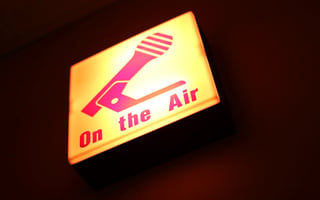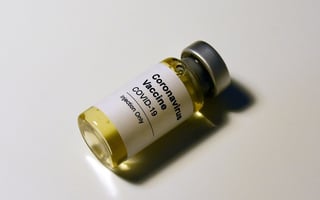Imagine you are a financial services director of a big-name brand.
One of the benefits of the lockdown and working from home is I get to see and hear more media interviews.
Not only does this help with inspiration for this media training blog but, with my headphones in, I can also largely ignore the home-schooling carnage erupting around me.
The downside of this situation, however, is I keep hearing spokespeople make the same mistake at the start of their interviews.
Here’s an example.
Listening to the Today programme recently, I heard Johan Lundgren, the chief executive of EasyJet, discuss the closure of air travel corridors.
He was asked how much of his airline’s schedule was now going to be cancelled.
And he began his response by saying: “Well, good morning and thank you for having me on the programme.”
This was not an isolated example.
James Reed, chairman of the Reed Group, also appeared on the Today programme – on a different day - to discuss a government review of workers’ rights now the country has left the EU.
The first question he faced asked what he thought employers would tell the review and what changes they would like to see to current employment law.
He began his response by saying: “Hello Dom. Good morning.”
Then I heard Ian Rippin, chief executive of standards organisation MCS, go a little further on You and Yours at the start of his interview.
Asked whether many installers were experiencing delays in payments for Green Homes Grant vouchers, he began by saying: “Well, good afternoon and good afternoon to your listeners.”
This approach to starting interviews with pleasantries is not limited to radio either. Watching Ian King Live on Sky News the other day, I saw Dylan Tanner, the executive director of think tank Influence Map respond to the opening question in his interview by saying “Thanks Ian – it is great to be on.”
Another edition of the same programme saw Charles Robinson, co-founder and chief executive of Gelcard – a company that makes credit card-sized hand sanitisers - begin his response to a question about where he had found the finance for the company from by saying: “Good morning Ian, thank you for having me on.”
This all seems polite and well-mannered. What’s wrong with it?
Well, thanking the journalist is quite a natural instinct and it is something we often see during the initial interviews on our media training courses. But it does matter and should be avoided.
Firstly, it is a waste of precious time. Broadcast interviews are short. The average radio interview is about two and a half minutes long.
A live TV interview may be slightly longer, but every second still counts.
It can be hard enough to get your message across clearly within such a limited timeframe without eating into that time by expressing your gratitude and exchanging pleasantries.
What you often see with interviews is spokespeople desperately scrambling to get their message across at the end when it is clear the journalist is wrapping things up.
Another issue is that it is simply dull. Listening to a series of spokespeople wishing the journalist ‘good morning’ and thanking them ‘for the opportunity’, is not inspiring or enticing.
And when that happens, the audience starts to switch off. This is particularly true in radio interviews. Radio is a medium we tend to consume while multi-tasking. So, you have to capture interest immediately if people are going to listen to what you are going to say.
Similarly, many people now watch TV while scrolling on their phone and attention spans are equally limited.
When interviews include ‘thank you for the opportunity’ style phrases, it can make it seem like you are lucky to be there talking to the journalist, rather than that you have something strong, important and newsworthy to say. Similarly, if you are in a crisis media management situation and are about to face a series of challenging questions, this approach might seem insincere.
Approaching the beginning of interviews in this way can also make it seem like you are trying to dodge difficult questions.
An important thing to remember is that a journalist is not going to think you are rude for not wising them ‘good morning’ or thanking them for having you on. They would much rather you start strongly and get straight on with producing an interview that informs, educates and entertains their audience.
In the same edition of You and Yours where I heard the interview with Mr Rippin I highlighted earlier in this blog, there was a great example of how to begin your interview strongly, even when the journalist includes a pleasantry in the question.
It came from Laura Gardiner from the Living Wage Foundation.
The presenter said to her: “Laura, welcome to You and Yours. Morrisons has just increased pay to the lowest paid staff so that everyone who works in Morrisons is paid no less than £10 per hour and they are the first of Britain’s big supermarkets to do that. How important is it?”
Having been welcomed on to the programme, the temptation could have been to begin by saying “thank you for having me.”
Instead, she ignored that and begun by saying: “I think it is a bold and really welcome step, reflecting the really essential role supermarket workers have played this year and the relatively healthy finances of supermarkets as a result.”
As you can see, she gets straight to something meaningful, and the interview, which you can listen to here at 32:07, is instantly attention-grabbing as a result.
It is worth pointing out that there are occasions where a journalist will introduce a guest and then simply say “good morning”, without going straight into a question. In this situation, it is fine to start by replying similarly.
But, if a question has been asked, you won’t gain anything from beginning your interviews with platitudes and pleasantries.
And on that note, it is time I broke up my kids’ maths lesson which seems to closely resemble a wrestling match.
Media First are media and communications training specialists with over 35 years of experience. We have a team of trainers, each with decades of experience working as journalists, presenters, communications coaches and media trainers.
Subscribe here to be among the first to receive our blog.




